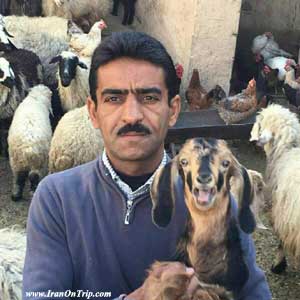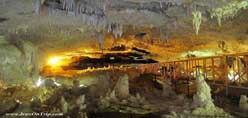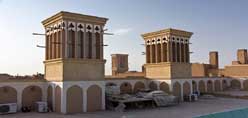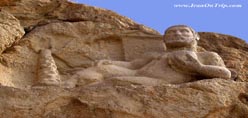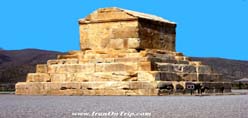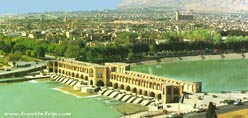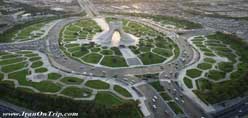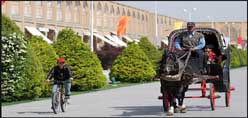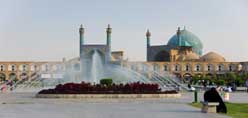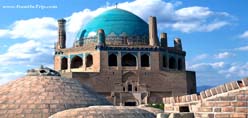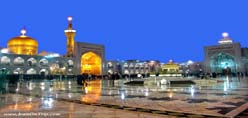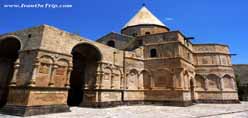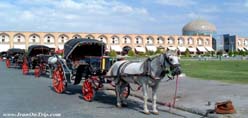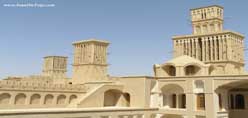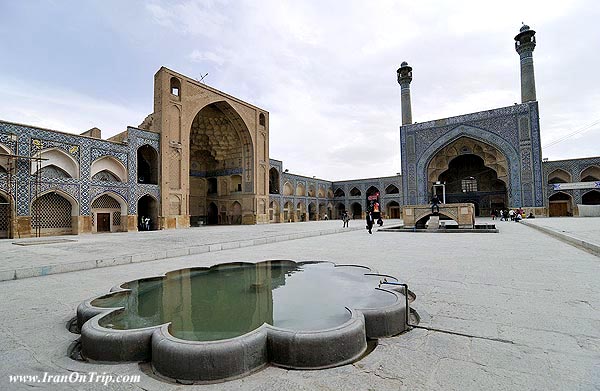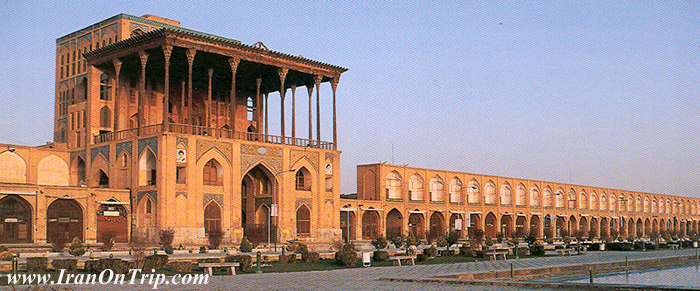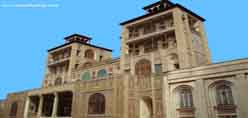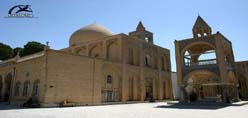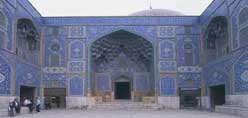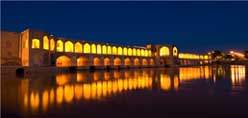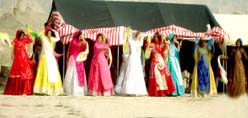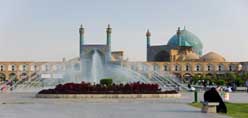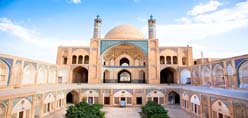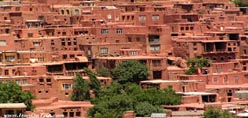Sean Penn's Trip To Iran
Personal details
Born Sean Justin Penn: August 17, 1960 -(age 54) -Los Angeles County, California, United States
Political party: Democratic
Spouse(s): Madonna (m. 1985–89) Robin Wright (m. 1996–2010)
Relations: Chris Penn (brother) -Michael Penn (brother)
Children: Dylan Penn-Hopper Penn
Parents: Leo Penn Eileen Ryan
Occupation: Actor, filmmaker, activist, politician
Biography
Sean Justin Penn (born August 17, 1960)[1] is an American actor. He has won two Academy Awards, for his roles in Mystic River (2003) and Milk (2008).
Penn began his acting career in television with a brief appearance in a 1974 episode of Little House on the Prairie, directed by his father Leo Penn. Following his film debut in 1981's Taps and a diverse range of film roles in the 1980s, Penn emerged as a prominent leading actor with the 1995 drama film Dead Man Walking, for which he earned his first Academy Award nomination and the Best Actor Award at the Berlin Film Festival. Penn received another two Oscar nominations for Sweet and Lowdown (1999) and I Am Sam (2001), before winning his first Academy Award for Best Actor in 2003 for Mystic River and a second one in 2008 for Milk. He has also won a Best Actor Award of the Cannes Film Festival for She's So Lovely (1997), and two Best Actor Awards at the Venice Film Festival for Hurlyburly (1998) and 21 Grams (2003).
Penn made his feature film directorial debut with 1991's The Indian Runner, followed by the drama film The Crossing Guard (1995) and the mystery film The Pledge (2001). In 2002, Penn directed one of the 11 segments of 11'09"01 September 11, a compilation film made in response to the September 11 attacks. His fourth feature film, Into the Wild (2007), garnered critical acclaim and two Academy Award nominations.
In addition to his film work, Penn is known for his political and social activism, most notably his criticism of the George W. Bush administration, his contact with the Presidents of Venezuela and Cuba, and his humanitarian work in the aftermath of Hurricane Katrina and the 2010 Haiti earthquake. Penn also attracted media attention for his previous marriages to Madonna and actress Robin Wright.
Sean Penn | Day One in Iran: Culture in Deep Conflict
In June, Sean Penn and two friends traveled to Tehran. It was Penn's first trip to the country. What he found was a culture in conflict. Although the nation is ruled by a very conservative, tradition-bound government, Penn talked to many younger Iranians who have a strong interest in Western culture and want their own country to liberalize its policies on individual rights. Beginning today, The Chronicle will publish a five-day series of his reports from Iran:
It's the week preceding presidential elections. Candidates attack one another's credibility. Activists push to boycott the vote. Traffic and pollution choke the cities. Leftists support a no-win idealist. Preachers guide their flocks toward political starboard. The media have fallen under the grip of standing power, and should they defy it, they're imprisoned. University students promote human rights, while fundamentalists deny them. It is a culture in love with cinema. With Brad Pitt. Angelina Jolie. And anything Steven Spielberg. It is a nation of nuclear power, where the lobbies of the religious right effectively blur the lines between church and state. But it is also a country of good and hospitable people. And when the local team wins a big match, there is dancing, kissing, drinking and drugs in the streets. Women are graduating the campuses in higher and higher numbers, occupying government in higher and higher numbers. Sound familiar? But wait. The women. Look at the women. All is not well. I'm thinking about the women. This is Iran.
It had been six weeks since my friend, author Norman Solomon, and I sat around in my living room deciding to travel to Iran and called journalist Reese Erlich to join us. Reese immediately began applications for visas. Over the month and a half that followed, he slogged through U.N. attaches and the cultural and foreign ministries of the Islamic Republic of Iran and swam doggedly upriver through the multiple bureaucracies that lead to a journalist's visa. This process led to continual rescheduling and revised itineraries.
When the visas were finally approved, two days beyond our latest planned departure, I was in England visiting my wife who was working there. On the afternoon of June 8, I watched the Iranian World Cup team dominate Bahrain on the television of the Iranian Consulate in London. Iran's victory gave me further reason to mourn our most recent travel delay, because it meant I would miss the jubilance that would surely explode in the streets of Tehran.
The next morning, I left London at 6 a.m. to rendezvous with Norman and Reese in Munich. While I waited in the Munich airport for their flight from San Francisco, I did some money changing, magazine buying and snacking. I travel better where English is not spoken. But English is spoken at German airports, so I remained restless until their arrival.
At 3:30 p.m. Munich-time, Norman, Reese and I boarded Lufthansa Flight 602 to Tehran. The other passengers were about 95 percent Iranian and a few Europeans. Last year, including journalists, fewer than 500 non-Iranian Americans visited Iran. I looked around the plane, full of modern men and women in Western garb, returning from vacations, family visits and business. Alcoholic beverages were served on the plane. But no alcohol sold for duty- free purchase. Iran is an Islamic state and a dry one. Nonetheless, many of these travelers were happy to get in their last swill before landing.
Four hours and 10 minutes later and a time change that would have us land at 10:30 p.m. Tehran-time, came a P.A. announcement as we went into approach: "Ladies and gentlemen, we have a very important announcement to make. For all our female passengers, by decree of the government of Iran, all female visitors are required to keep their heads covered. In your own interest, therefore, we ask you to put on a scarf before leaving the aircraft in Tehran. Thank you." With that, women clamored for the lavatory. One at a time as they exited, hundreds of years of transformation had occurred. All of these modern women, who would've looked quite at home dancing in a Paris nightclub, were now covered head to toe in black chadors, makeup scrubbed from their faces, cleavages and midriffs a memory.
There are no separate queues for Iranian and foreign passport holders at customs, and, as my pals and I had traveled in the rear coach seats, we found ourselves somewhere three-quarters back in the line. I was anxious to get out into the street, to smell the city and its traffic, to arrive at the hotel, check in with home. Our cell phones would not work in Tehran, so I hoped that the international phone lines wouldn't be difficult to get. I noticed that many Iranians were freely smoking cigarettes in line, certainly no signs prohibiting it, and immediately joined them. I was quickly singled out by a uniformed customs agent who instructed me to put out my cigarette. Only me. Not the Iranian passengers.
Eventually, Norman, Reese and I went forward to the customs booth and presented our three American passports. We were told to "wait," rather abruptly. With that, the young Iranian customs official left his booth with our passports, taking them to another office, out of our line of sight.
The official returned, but without our passports or any explanation. We stood dumbly by, as the remaining Iranian passengers were stamped and passed us.
Over an hour later, we were still waiting in a now-empty customs hall. I sat on the floor. Reese paced. And Norman, Zen as always, stood in place. Suddenly, four uniformed customs officials appeared and hurried us into a small office, where one by one, we were fingerprinted and directed in Farsi. It wasn't clear whether the fingerprinting was leading to our being permitted into the country, or if our passports alone were the reason we were being detained.
What does he want?
The agent whose large hands had rolled my black-inked fingers and palms over several printing forms barked at me to follow him with a wave of his hand. He led me to a men's room, where he swung open the door and indicated I should go in ahead of him. It was a bit of a ratty hole. Water closets, open. Worn, reflectionless mirrors. Where our standard toilets might sit, these are simply holes in the floor, with dark glimmering puddles beneath, and fluorescent light above. He just stared at me. Neither threateningly, nor warmly. Seconds went by as I stared back. Neither threatened, nor comfortable. "Now what?" I said. He raised his hands and wiped his palms over one another. Yes, he wanted me to have the opportunity to wash my hands, rather than to walk, black-handed, into the Persian night.
So I turned to the sink, there were the last bubbles in a soap dispenser and I tried to pump it. The water came on automatically, nice modern touch, but it was cold. I rubbed my hands together under it with a bubble or two of soap, to at least a graying effect. When I looked for some sort of towel to dry them, there wasn't one. So, I took a deep breath and slid past my 6-foot-3- inch minder into one of the water closets, grabbed some toilet paper, and dried my dull gray hands.
There was, it turned out, a contrivance in the tone of all this. The language of the Iranian Parliament in the decree for fingerprinting makes no attempt to disguise the retaliatory impetus of the fingerprinting policy: Americans do it to Iranians. Iranians do it to us. When I thanked the agent for his help, I was as much thanking him for not putting my head in the water closet hole as for facilitating our clean-handed entrance into his country. When we got to the baggage area, our driver was dutifully waiting, as were our bags. We jumped in the car and headed for the hotel.
The streets of Tehran at night are reminiscent of Baghdad or Mexico City. Jousting, yelling, horn honking and warm thickly polluted air, mud-splattered motorcycles, winding through human traffic at death-bound speeds. This was the week before the Iranian presidential election and the city was papered with campaign posters. Dominant were those of former president Ali Akbar Hashemi Rafsanjani. I knew it would be an eventful week. I did not know we were headed into the most violent week in Iran in more than a decade.
The Hotel Laleh had once been the InterContinental. Its modern conveniences intact, we pulled our luggage through the lobby, greeted by bellmen, ever so warm and happy to relieve us of our bags. At check-in, it is required to surrender one's passport and identify what type of visa one travels under. The legality of my presence was based on my technical position as "journalist." Hence, I checked in as such, went up to my room, called home, then got some sleep.
I got up with the morning light, opened the curtains and could just make out the sparsely snow-spotted peaks above through the polluted haze. Tehran lies at the foot of the Elburz Mountains. In some directions, it doesn't look unlike Los Angeles at the foot of the San Gabriels. Staring into my room from the boulevard below was a banner with the visage of Ayatollah Khomeini. Our first scheduled event was the Friday morning prayer service. But that would not begin for several hours. I went downstairs, out the door, and walked into the Tehran morning.
This would turn out to be one of the few times I was able to be alone on the visit. But it was an important time for that. My unsure footing at the airport, the hustle of the city we drove into the night before, were by now, dreamlike and wary episodes of travel. But now I was just one more rested body and spirit walking down the Tehran street. What I had anticipated of this deeply Islamic city was some sort of post-chant, post-prayer gloominess, dark- eyed men with dark beards, eyeing me with suspicion, shrouded women not eyeing me at all. But that's not what I saw. And that's not what it felt like.
of course one doesn't see a woman without a scarf, called a hijab, on her head at least, and a chador covering her body. It is unlawful to touch a woman in public unless you are her husband. Girlfriends and boyfriends are not permitted to hold hands. However, there are many smiles. There was laughter and very warm feelings in the eyes that fell on this American visitor. Surprised to encounter me in their city, some told me how much they liked the movie "21 Grams," a film in which sex and drug abuse are both seen in graphic detail. Over the next days, I would find that American movies are readily available and popular in Iran, viewed on black market DVDs. The DVD man goes house to house, like a milkman might.
The Back of the Bus
I walked slowly over about a 2-square-mile area. The image of Ayatollah Khomeini, as stern as an Orwellian leader, is omnipresent on the sides of buildings, walls, billboards and bus stops, watching my every move. As I studied one of those building sides, the searing eyes of their beloved Ayatollah, I stepped off a curb and was nearly flattened by a transit bus. I leaped backward onto the sidewalk. And there they were, staring down upon me, Iranian men, in the front of the bus. But as I regained my bearings, the last third of the bus passed me and it was there, where everything went into slow motion. Sliding by me was the rear of the bus, occupied only by women in black chadors. The back of the bus. I thought of Rosa Parks.
Back at the hotel, I went for coffee and scrambled eggs at the downstairs buffet. A canned, Muzak version of "I Will Always Love You" plays. The scene downstairs reminded me of similar scenes in Iraq, at Baghdad's Al Rashid and Palestine hotels. International journalists with that "What the f -- are you doing here, Mr. Penn?" look on their faces.
I grabbed a copy of the English version of Iran News. I read that the United States was considering the sale of commercial aircraft parts to Iran. The Muzak changed, and an instrumental of "Unchained Melody" took over. After breakfast, I swung by the front desk to inquire about exercise facilities, in or out of the hotel. There wasn't much available, but there were a couple of times I found myself running the emergency stairs twelve floors up and twelve floors down. And it got a bit musty.
I headed upstairs to get ready for a 10 a.m. meeting with the Iranian agency that represents visiting journalists. I loaded my camera, my tape recorder and changed into a more formal pair of shoes, as I didn't know what expectations of dress the prayer service required. My television was on and CNN World Report registered a viewer complaint that there were too many stories about China. Too few covering the Downing Street Memo revelation. I had put myself to sleep the night before with CNN World Report, special edition on China's sex museum.
After getting our official credentials, we headed off to Friday prayers. Security was very tight around the stadium of Tehran University where the faithful assemble for Namaze Jumeh or Friday Prayers. We surrendered all metallic objects after going through a series of metal detectors. I was subjected to an upper body search, triggered by a cash pouch around my waist. (The interest on credit cards is against Islamic doctrine and therefore, one carries and pays in cash.) Then we were escorted to the press balcony.
The stadium was hung with banners. One translated, "We shall always support the Palestinians." Another, "Resistance against the conspiracies of America and Israel will disappoint them to predominate over Iran's nation." This phrase is attributed to "the grand, great leader." Bit by bit, the stadium filled until 10,000 worshipers created a sea partially of white and black turbans (the black represents the Seyed or direct descendent of the prophet Mohammed) pale and dark shirts. Chanting echoed throughout the building. Government officials fill the front rows. Military arrived in groups, in the belief that their prayers will be answered in multiples. Many, as simple conscripts, seemed less focused on the proceedings. And behind them, the sea of the devout.
The opening sermon was delivered by a low-level cleric, Ayatollah Mesbehi, and focused on economic morality. With every bow, and only backs showing, the bodies of worshipers created the illusion of an undulating Persian carpet. The women were sequestered in an entirely separate area, all but unseen from the press balcony. The hard-line cleric Ayatollah Ahmad Jannati arrived to deliver his sermon. He leads the six-man Guardian Council, the controversial and largely considered fundamentalist body that governs state decisions over and above those made by the president or parliament (Majlis). In an apparently direct targeting of centrist candidate Rafsanjani, he preached against the dangers of nepotism in government. Rafsanjani was known to employ many of his relatives in his cabinets, and represented a power and following that directly threatened that of the Guardian Council.
As Jannati transitioned toward international policy, he reminded what was largely considered a reluctant voting public that every vote is a shout of death to America. He goaded the crowd to join the chanting calls for "Death to Israel!", "Death to America!" Ten thousand strong of voice. I was struck by the familiar: a cleric guiding his followers in their politics, and toward particular candidates away from others. It has been my observation that this kind of invective speech is common, not only in Iran but in the Arab states as well. According to many with whom I spoke, it had always been clear from the Iranian point of view, that the call is related to American foreign policy and does not intend to target the death of the American people. However, when the supposed purpose of a 10,000-person rally is in the prayer and scruples of Islam, I can say that as an American (a half Jew, by the way), the chant demeans both intent and any religion that aspires to a core of love and reduces it to a cheap political threat of violence.
As the service came to its end, hands released the prayer beads counted for pacing of prayer. In our case, we checked Reese's watch, which said it was time to beat the crowd and get back to the car. We went back through the multiple security checks like the first fleeing audience members of a rock concert..
Iran is not an unsophisticated country. These are not unrefined people. And many, even among the worshipers at the Friday prayer service, do not subscribe to a literal interpretation of the call for "Death to Israel" and "Death to America." However, in the mantra of chant, comes an adulated sense of horror. Why such anger at the United States? Where had Iran's traumatic experience with American power begun?
Just after the midpoint of the 20th century, Prime Minister Muhammad Mussadiq -- erudite, secular and committed to a democratic vision of Iran - cast a formidable shadow across the world stage. At home his popularity grew as he insisted on putting an end to Britain's long-standing plunder of Iranian oil. In April 1951, Mussadiq took decisive action, nationalizing the British oil firm that had enjoyed a sweetheart deal with Iran's government. Despite fury in London, he set up the National Iranian Oil Co.
British leaders got nowhere when they asked the Truman administration to use the U.S. government's more trusted position in Tehran to help overthrow Mussadiq. But as soon as President Eisenhower took office in early 1953, his foreign-policy team rolled up its spooky sleeves to get the job done. The regal Shah of Iran -- a faithful buddy of British oil executives -- was losing his power struggle with Mussadiq, and in August the Shah abruptly left the country and fled to Rome. The CIA, working as senior partner with Britain's MI6, quickly moved to subvert Iranian democracy.
CIA operative Kermit Roosevelt, a grandson of Theodore Roosevelt, labored feverishly in Tehran to coordinate a coup that brought down Mussadiq in August 1953 and quickly restored the Shah to the throne. Western oil companies were back in charge of Iran's oil, and the Shah initiated what turned out to be a quarter-century of political repression, torture, and killing.
Author Dilip Hiro wrote:
America -- a power that most secular nationalists had initially considered to be benevolently neutral to Iran in its dispute with the British -- had clandestinely allied with Britain to overthrow a government that represented popular nationalist interest. This reprehensible act of the United States left a deep scar on the minds of Iranians, implanting most of them with abiding animosity toward America."
With the 1979 revolution, came the flight of the Shah and the return of Iran's exiled spiritual leader Ayatollah Ruhollah Mousavi Khomeini.
Sean Penn
Go to Original
Day Two In Iran: A Short History of US-Iran Relations
By Sean Penn
The San Francisco Chronicle
Tuesday 23 August 2005
DAY TWO
After attending Friday prayer services in Tehran, Sean Penn, who visited Iran in June in the days before the country's presidential election, prepares for a meeting with the son of a former president of Iran. Mehdi Rafsanjani was also a campaign director for his father.
We were sitting in Nayeb restaurant in central Tehran. I'd been holding a piss through the hours of prayer service. So after I ordered my lunch, I excused myself to the men's room. "Men's" was written in Farsi above, and "Manly" in English below. I stepped into the water closet, grateful to just have a piss. If I'd had more serious business there, it would've been a squat job with no hook for one's jacket. Now, that would've been manly.
After lunch we had an appointment with Mehdi Rafsanjani, a campaign director and son of former President Ali Akbar Hashemi Rafsanjani. He's an informal man. A little portly, he seemed almost amused at the opportunity not so much to answer our questions but to anticipate them. We spoke on a range of issues, from Iran's nuclear intentions to the rights of women, the process of elections and the history of our two countries' tension. In almost all cases, he referred our questions back to us. "You have less candidates than we do." "You develop nuclear energy." Norman Solomon took this one on. Referring to pockets of high cancer rates in the vicinity of our nuclear facilities, he conceded that perhaps we have made some mistakes. The young Rafsanjani responded, "We like your mistakes." The issue of nuclear weapons brought an ironic smile to his face. "Why does the U.S. administration continue to pressure and pry into our business? It was the United States that made the chemical weapons used by the Iraqis against 10,000 people at Halabja." (Only six weeks after the horrific events in Halabja, President Reagan sent his Middle East envoy, current Secretary of Defense Donald Rumsfeld, to deliver to Saddam Hussein the news that the United States had taken Iraq off its terrorist hot list. The meeting was sealed with the now infamous photograph of Rumsfeld and Hussein shaking hands.)
Currently, the United States holds $12 billion in Iranian assets frozen. And young Rafsanjani suggested the releasing of those funds might be a good first step for the United States in the normalization of relations with Iran.
Then he said something that really caught my ear. "There are four or five dissidents only who are currently in prison," he said with disconcerting ease. "Even you, in the United States, have journalists in prison, probably the same amount, and some currently under threat. There are some human rights issues, then we have to solve that. In the United States, your Guardian Council are the rich. It is not so different." In the days to come, the younger Rafsanjani's words would be put to the test. He had posed a balance between Iranian treatment of free press and that in the United States. I chose to diligently consider this proposition, and was mindful of the cases against Matt Cooper and Judith Miller, and separately, the suspicious umbrella over Robert Novak back home. (Iranian law demands journalists reveal their sources upon government request. Our own 1972 Supreme Court decision effectively demands the same of journalists in the United States.) While the language of the court decision may have been gray, today Miller sits in jail for refusing to reveal a source. The information assault aimed at a high-profile visitor will keep you busy. Journalists seize the opportunity to chat you up with their Middle East expertise. If you're not feeling chatty, they'll write dismissive things about you in their columns and blogs. In all these things, the human ego affects information.
At the same time, I found myself approached with hundreds of opportunities for interviews with all those on the journalists' circuit of interviewees. I was offered interviews over here, interviews over there. I was even contacted for a potential interview with former president and candidate Rafsanjani himself. But I was a little uninterested in most of it. Journalists spend so much of their time in pursuit of regurgitated information. Let's talk to this one for that side, that one for this side. The analysts say there is a possibility of developing arms. The diplomats deny any interest in doing so. Some say it's anti-Islamic. And other journalists back in the States read those quotes and paraphrase them or borrow them for their own articles. Offhand remarks by the "usual suspects" suddenly become unassailable fact. It adds up to a lot of print about the same thing; it makes you dizzy. You begin to lose your clarity, focusing entirely on the power establishment and losing the important story of any land: its people. Meanwhile, on the street, there are interesting rumblings about people who dared to challenge the official version of the truth.
Akbar Ganji, a heroic investigative journalist who at one time wrote columns implicating high-ranking individuals in assassination of dissidents, had disappeared two days before my arrival in Tehran. The talk on the street had him in prison or dead. Ganji had already spent 62 months behind bars on a term that began in April 2000 for expressing political views. (The following day, it would be revealed by Human Rights Watch that he had been taken back into solitary confinement at Tehran's Evin prison, was barred from contact with family or lawyers and has taken to a life-threatening hunger strike.)
I put out the word that I would like to speak with Abbas Abdi, another prominent dissident who had been jailed two years for polling Iranians on relations toward the United States. I was told that in the uncertainty of the moment, and because of the disappearance of Ganji, Abdi was giving no interviews. I was starting to question, very seriously question, Mehdi Rafsanjani's view of what represents a free press in Iran versus that in the United States.
In the late afternoon on Friday, following our meeting with Mehdi Rafsanjani, there was to be a rally at the primary campaign headquarters of the elder Rafsanjani in Elahiyeh, on the north (and rich) side of Tehran, in the highlands. Some outdoor cafes, nice cars, posh houses. We drove through the congested city some 40 minutes to the foothills that are Elahiyeh. We pulled over beside a cafe and went inside.
It was a little, bohemian-looking place, but still clean and upscale. So was the crowd. Three women sat at the table behind us. We asked if they would talk to us about the election. They were happy to talk, but not so much about the election. They didn't intend to vote. Seemed like a sham to them. Women count as one-half a man in this country. Insurance benefits are half. Death benefits, called diyeh, half. And in the "he said - she said" weight of testimony in a criminal case, half. Guess who wins that verdict? The disappointments of the Mohammad Khatami regime had created a lot of this. "Nothing happened and nothing will happen. We have zero sense of hope in the election," one of the women, a 31-year-old Arabic instructor, told us. "Khatami promised us some freedoms," she said. "I can't even get any in my house. I can't even have satellite television. They are playing with us."
We were briefly joined by a man from an adjacent table. He offered, "This country was in a state of mourning after the Iraq-Iran war. We lost an entire generation of Iranians. One million people were killed. You cannot forget these things if you aim to understand our country." And I did understand it in this context: The United States lost 58,000 men in combat in Vietnam. Our population at that time was roughly 220 million, so the casualties were approximately .026 percent of the entire population. And yet we all feel wounds of that war to this day. I imagined what it must have been like for Iran to have lost one in every 50 people in the country, a full 2 percent of the total population wiped out in an eight-year war. He went on, and in describing the evening following the Iranian soccer team's victory over Bahrain, said, "You should've seen it. I did not think my people could be happy like this again." (The celebrating on the streets of Tehran that night was so buoyant and large that police allowed women to take off their scarves, and there were even reports of open drinking. The celebration and police tolerance ended at 6a.m. the following day.) The young man thanked us for listening and returned to his cappuccino.
Two of the women lived together. It seemed that they might have been insinuating that they were a lesbian couple, but I can't say for sure. I refer to my internal manual of ethics, and there it is right there, in "questions unbecoming a gentleman": Don't ask two women you just met if they're lesbians. I'm big on prudish restraint. Yet without asking, they do make it clear that their holing up together is frowned upon by their families and society alike. A single woman may live with her parents, perhaps on her own if she is able, but with another single young woman, everybody's back gets itchy. Yet, whatever the private truth of these two women, "sexual freedom" would make for a difficult movement to mount, as even uttering those two words together is against religious law in the Iranian republic.
At some point in the conversation, a man somewhere in his early 40s, wearing a dark pinstriped suit, stepped over to my companion Reese Erlich and whispered something in his ear. When the man returned to his window-side table, we thanked the women for their time, and they returned to their table. "What did that guy want, Reese?" I ask. Turns out that fellow had recognized my face. Seemed to feel he could set up an audience with Hassan Khomeini, grandson of the late Ayatollah Khomeini, the one whose image was staring at me everywhere I went. He said he could also facilitate an interview with Mehdi's father, Ali Akbar Hashemi Rafsanjani.
While I have said there is a great warmth toward Americans, it's never far from your mind that you're one bedside book in the toilet away from death. One handshake with a woman away from jail. A visitor is subject to all the laws of the Islamic Republic of Iran and all its thinly veiled oppression. And less thinly veiled restriction on the press. It's like dancing on a volcano. So, who was this "Star Wars" Sith? And why did he want to give us his connections? We were wary, to say the least. He'd given Reese a phone number, and, after we left the cafe, we shared our thoughts and concerns.
Of course, we wanted the interviews if we could get them. These were two major figures, one of whom, it appeared at the time, was likely to be returned to a presidency he'd relinquished in 1997. But we wanted to be careful not to be led into something by one, and there are many, of those who, for their own purposes, would design circumstances simply to create a sense of Iran as an unstable place. We called the cell number, and the gentleman was strangely pushy. We told him we couldn't do it immediately. He said he could come to our hotel at 10:30 p.m., and Iran he and some others would pick us up and take us to the interview with Khomeini. When we said we had our own car and driver, he pursued, saying, "Oh, it'll just be easier. This way you won't get lost." Reese told him he'd call him back, and filled us in.
We decided that if he really had the pull that he claimed, perhaps he would have it in the daylight of the following day. So once again, we called back the man in the suit and gave him a window of daylight hours the following day, when we would be able to make time for the interviews. And added that we would drive ourselves. It had also been requested that our translator not accompany us. He assured us that they had fully capable translators of their own. Why was I seeing knives in my head? Later that evening, the stranger returned our call, saying the meeting had been set for 3 o'clock the following afternoon; we could come in our own car to the well-known estate of the late Ayatollah Khomeini for an audience with Hassan. The meeting with Rafsanjani would take place the following day.
Saturday morning. We headed off to the grand bazaar in the southern end of the city. Its covered shopping alleys spread over nearly a five-mile area. There are several mosques, but it primarily serves as a place of commerce, a shopping mall with history. Men pushed newly woven Persian rugs through the crowds on trolleys. Stores sell ceramics, silver, electronic equipment, lingerie. There are great corridors of tile and brick ceilings. There are goldsmiths, bridal shops, figurine parlors. At the entrance, there is even a bookseller featuring biographies of President Bush and Sen. Hillary Clinton.
The bazaar was crowded, loud and pungent. I knew that it had been an economic power center throughout its history. Being a merchant and being part of the body politic were one and the same. One of the mosques serves as a paramilitary training center for the Baseej, (a volunteer militia affiliated with Ansar-e-Hizbollah, the Iranian wing of its Lebanese Shiite base,) whose thugs make it their business to control social freedom and enforce their view of Islamic morality, participating in everything from the beating of young couples for unlawful contact to the international assassinations of dissidents. Here they are. The radical right's muscle, who answer only to the office of the supreme leader Ayatollah Ali Khamenei. Their bazaar chapter is 5,000 strong, and uniformed police defer to their authority.
On my first trip to Baghdad, prior to the war, it was easy to see the effect of U.S. sanctions. Sadly but not surprisingly, when I returned to Baghdad during what had become the guerrilla war (writing for The Chronicle: Part 1 Jan. 14, 2004, Part 2 Jan. 15, 2004), things had only gotten worse. There had been many debates regarding the effectiveness of sanctions. From my observations, the historical effect of sanctions is to leave the people of a country paying the greatest price. There's no question that Hussein pillaged benefits intended for his people and that that additionally contributed to the destitution of his country. Nonetheless, the sanctions on Iraq were strict and made obtaining standard goods difficult and often impossible. That is not the case in Iran. Iran is a rich country. And the sanctions imposed on it by the United States do not limit access to American or international goods, except to those unable to afford it. If you want a Mercedes Benz, it comes through the middleman in Dubai. If
you want Frosted Flakes - from Turkey. Heroin, of course - that's Afghanistan, and represents a significant problem in this dry Islamic state. I saw these goods in Tehran as commonly as one might in Des Moines. As I write these notes, I'm drinking a Coca-Cola from the Brazilian subsidiary of that American company. So as not to implicate anyone, I'll only say this about alcohol: I found it. It was easy to find and tasted just as good as it does here at home. .
With his family fortune rooted in the pistachio business and his father the country's former president, Mehdi Rafsanjani is a man who is comfortable with power. He uses that sense of his family's influence well, with charm and finesse. When we pressed him on the question of what Iran does with its radioactive waste, his only response was, "Well, America does it."
Not only is "America does it" a blind justification for harassment, fingerprinting and nuclear technology in Iran, it is also rooted in the culture of the country as a kind of aspiration. There is a love for our nation that is palpable on the street. There is a deep desire for our respect in return. And this seems very crucial to the psychology of Iranian politics, both hard-line and reformist. For all of the bad blood between our nations, you can't help observing that Iranians also love us, and what they know of America. I'm not talking now of the minority militant bastions of hatred but, in my limited experience, of Iranians in general.
This is a country where over half the population is under 26 and, given a chance, would indeed move their nation toward a more secular democracy. It isn't just their declarations of love toward this traveling American. There is proof of it in their knowledge and excitement about our country. This interest was not created for my benefit. It was there when I arrived. Yet if the United States continues to pursue inflammatory rhetoric, like the "Axis of Evil," or worse, increased sanctions and potentially unjustified military action, you can't help wondering if it may move a heterogeneous country, well on its way to new ideas and pursuits of freedoms, into a homogenous monolith of hatred. While the regime's behavior has been suspicious, Iran consistently claims compliance with the Nuclear Non-Proliferation Treaty (of which it is signatory), and the International Atomic Energy Agency seems to concur. Any reckless action on the part of the United States or Israel may lead to Iran dropping out of the treaty. For the moment, Iran's greatest concern is a possible Israeli attack on Natanz or Bushehr, its primary nuclear facilities. (It should be noted that only weeks prior to its inclusion in the Axis of Evil, Iran invested $560 million in support of U.S. actions in conjunction with pro- Iranian Afghans against a declared, mutual enemy in the Taliban.)
Sean Penn
Sean Penn with students at Tehran University, June 2005.
Photo by Reese Erlich
After my brief photo op with Hashemi Rafsanjani, I headed to the University of Tehran, which on Sundays is in full swing.
We hit the campus about lunchtime. There were many students, socializing, eating lunch, laughing. We approached a small group, a young man and two young women, sitting on a bench. "May we talk to you?" I asked. Hearing our English, the good-looking, angular young man turned to us, "Where are you from?" he asked. "The United States of America," I said. He responded, "The big evil, huh?" clearly mocking the mullahs who refer to the United States as the "Great Satan," and to Britain as the "Little Satan."
The young man's name was Arya. He was 21, an undergraduate student in political science. I asked him about the needs of his peer group. "Young people in Iran need some freedom, they need some human rights. ... We need democracy, and the basis of democracy -- it takes a long time. ... I think the big problem here in Iran is the religion. People are so religious, and it's a big problem here because in the deep of their hearts they feel something about religion and they do something unreasonable, I think. ... I want to see a separation of religion from politics. ... (In the past few years) a lot of things changed, people realize that they can say their opinion, it's not a big deal that you have a different opinion from the others, and it's a good thing, and everybody started to express their feelings and beliefs. But as you know we have a lot of political prisoners, that's a big problem. .. . There's always a red line -- don't go over it. But I think it's gradual, democracy and the knowledge in people is a gradual thing that's step by step. . .. Now, it's not a good environment, there's a lot of mental problems -- and a lot of things -- you have to hide your love, you have to hide everything, you have to wear masks; to have jobs, to have everything you have to wear masks, several masks. You have to change every mask you go everywhere."
What about young people who did not agree with that point of view?
"They're affected by the wrong expression of religion," he said. "They think religion is just to fight, in Islam especially; you have to fight with everybody, with anyone who says something against you or doesn't believe your thoughts -- and it's a wrong idea. You can have your opinion, you can have your own beliefs, everything, and you can live with other people."

.jpg)
